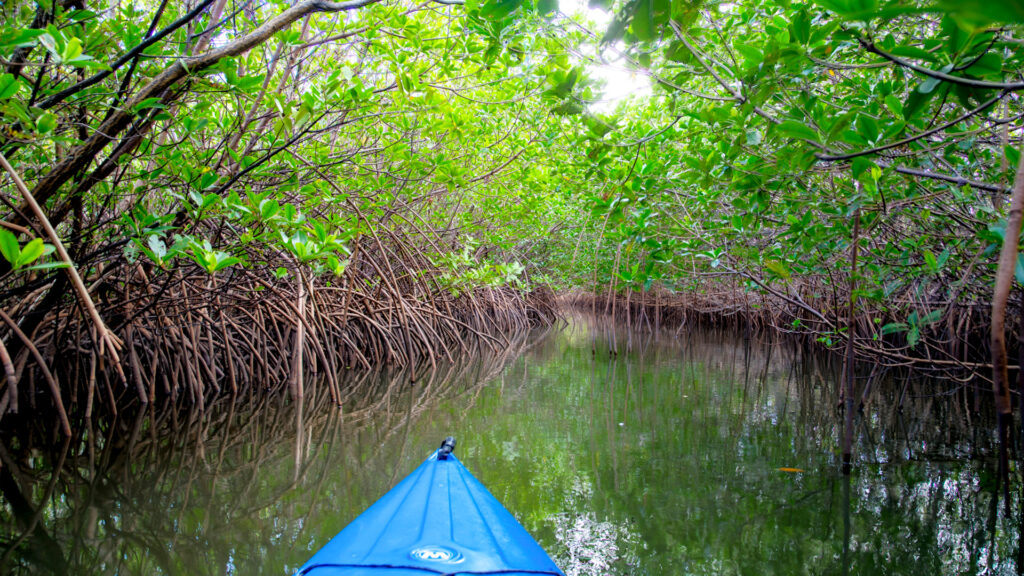A roundup of news items related to climate change and other environmental issues in Florida:
Proposed bill would restore mangroves to help fight coastal erosion | Spectrum News

As climatologists predict more frequent and stronger storms, Florida coastlines face the risk of erosion. But now, there is a bill in the state legislature that aims to help our shores by expanding protections against mangroves.
Mangroves are so important to coastline protection that there are laws protecting them. SB 32 calls for the expansion of state statute by encouraging local governments to replant and restore mangroves. It would also implement permitting incentives for local governments to install what are known as “living shorelines,” which are the use of natural elements that protect as they grow.
“Any kind of measures we can do to promote mangrove growth along our shoreline areas really go a long way to help those communities that are built behind the mangroves,” said Peter Clark, president of Tampa Bay Watch.
Florida burns its trash for energy. And now it wants to use climate funds to expand | Fast Company
On a Sunday in February last year, a trash incineration facility in Doral, Florida, near Miami, caught fire, producing black smoke and an off-putting odor. Less than half a mile from the nearest home, it affected local residents — more than a third of whom live below the poverty line — who reported health problems from rashes to burning eyes.
Trash incineration has been around for more than a century as a way to dispose of waste and generate energy at the same time. Though it’s relatively uncommon in the U.S., it is prevalent in Florida, which plans to expand its current operations, partly with Inflation Reduction Act (IRA) tax credits. Proponents say it’s an environmentally responsible way to deal with excess trash. Critics say it’s the exact opposite.
There are about 75 trash incinerators, or waste-to-energy (WTE) facilities, in the U.S. Florida has the largest share, with 10 incinerators combusting about 8% of its waste. They proliferated in the 1980s and 1990s, following a bill that mandated counties consider the system as a waste management solution. Eight of the facilities are run by counties; two are privately operated.
How meat and milk companies are racing to ease your climate guilt | Washington Post
At Hopdoddy Burger Bar near the University of Florida campus in Gainesville recently, Van Morrison crooned “na na, Natalia” and the Sauce Bar was fully stocked. The menu advertised the usual gluten-free and vegan options, as well as something more unusual: beef purporting to “save the planet, one bite at a time.”
The Austin-based chain buys the meat from ranchers who use eco-friendly agricultural techniques. The burgers — about $4 more expensive than the traditional ones — are designed to appeal to a fast growing, desirable demographic of climate-conscious omnivores. But the extent to which such premium-priced beef patties are helping cool the earth is hotly disputed.
“We want to change the narrative that eating meat is bad for the planet, or that eating plant-based is better,” said Chad Edwards,the on-duty manager, explaining the company’s “just eat a Hopdoddy burger” solution to climate change.
If you have any news items of note that you think we should include in our next roundup, please email The Invading Sea Editor Nathan Crabbe at ncrabbe@fau.edu. Sign up for The Invading Sea newsletter by visiting here.



